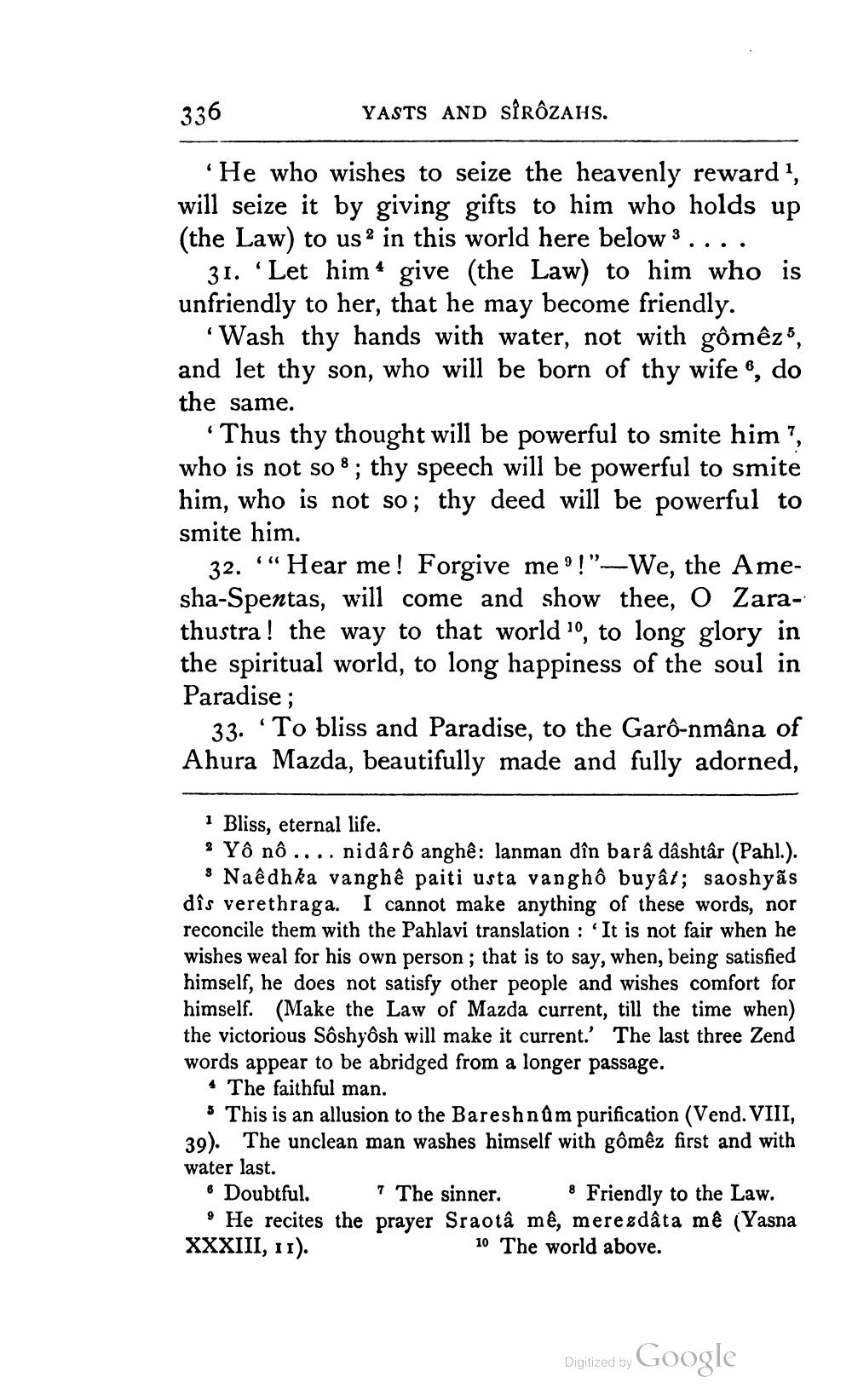________________
336
YASTS AND SÎRÔZAHS.
"He who wishes to seize the heavenly reward?, will seize it by giving gifts to him who holds up (the Law) to us 2 in this world here below 3 ....
31. 'Let him 4 give (the Law) to him who is unfriendly to her, that he may become friendly.
Wash thy hands with water, not with gômêz", and let thy son, who will be born of thy wife , do the same.
'Thus thy thought will be powerful to smite him?, who is not so 8 ; thy speech will be powerful to smite him, who is not so; thy deed will be powerful to smite him.
32. ““Hear me! Forgive me!!"-We, the Amesha-Spentas, will come and show thee, O Zarathustra ! the way to that world 10, to long glory in the spiritual world, to long happiness of the soul in Paradise ;
33. “To bliss and Paradise, to the Garô-nmâna of Ahura Mazda, beautifully made and fully adorned,
1 Bliss, eternal life. ~ Yô nô .... nidarô anghề: lanman dân baru dashtar (Pahl.).
* Naêdhka vanghê paiti usta vanghô buyât; saoshyãs dîs verethraga. I cannot make anything of these words, nor reconcile them with the Pahlavi translation : It is not fair when he wishes weal for his own person; that is to say, when, being satisfied himself, he does not satisfy other people and wishes comfort for himself. (Make the Law of Mazda current, till the time when) the victorious Sôshyôsh will make it current.' The last three Zend words appear to be abridged from a longer passage.
• The faithful man.
$ This is an allusion to the Baresh nûm purification (Vend. VIII, 39). The unclean man washes himself with gômêz first and with water last.
6 Doubtful. The sinner. & Friendly to the Law.
• He recites the prayer Sraotâ mê, merezdâta mê (Yasna XXXIII, 11).
10 The world above.
Digitized by Google




